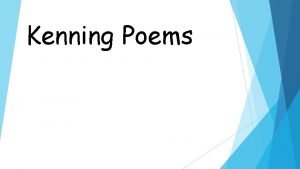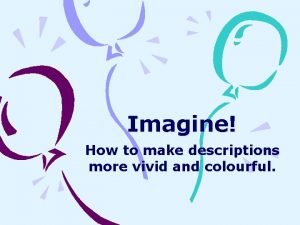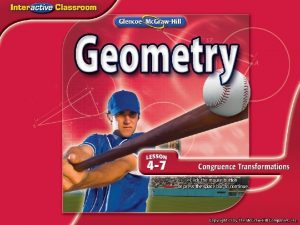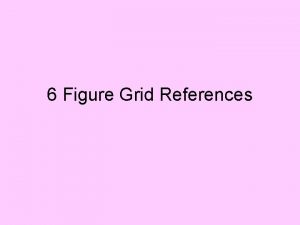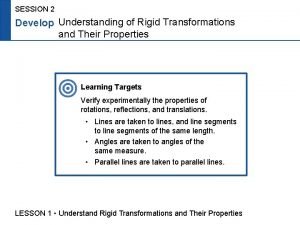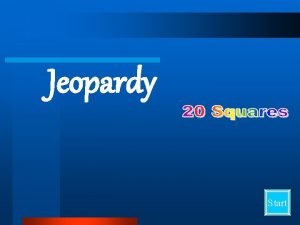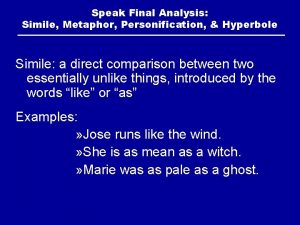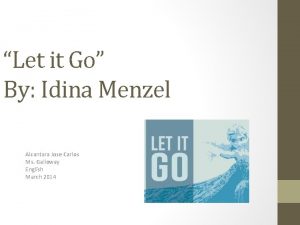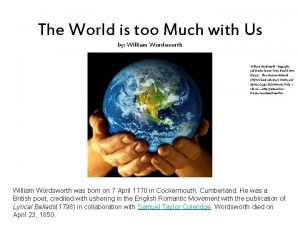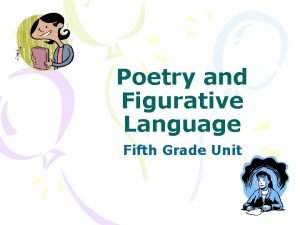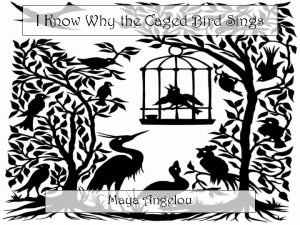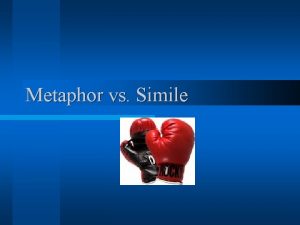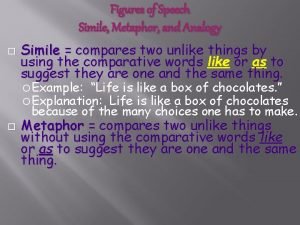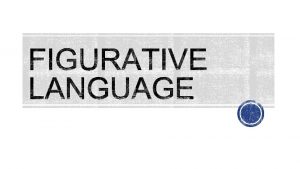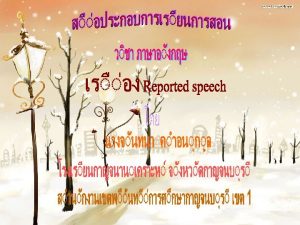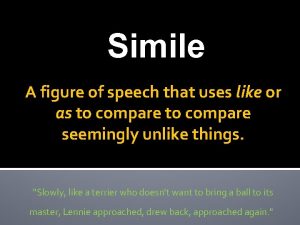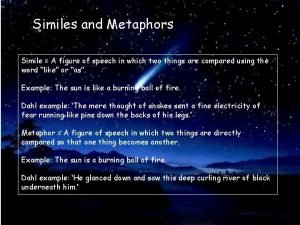Simile A simile is a figure of speech











- Slides: 11


Simile • A simile is a figure of speech that compares two unlike things. • Uses the words “like” or “as” in the comparison • • “She’s as blind as a bat” “Life is like a box of chocolates” “As easy as shooting fish in a barrel” “He’s as thin as a toothpick”

Simile • Makes language more descriptive and enjoyable. • Adds depth and greater meaning to the text. • “In his blue garden men and girls came and went like moths among the whisperings and the champagne and the stars. ” (39) • Comparing Gatsby’s guests to moths • “…then the glow faded, each light deserting her with lingering regret, like children leaving a pleasant street at dusk. ” (14)

Metaphor • Indirect comparison of two things • Does NOT use the words “like” or “as” • When you portray a person, place, thing, or an action as being something else, even though it is not actually that “something else” • “That class was a breeze” • “All the world’s a stage” • “He has a heart of gold”

Metaphor • Applies to the reader’s senses • Gives a life-like quality to conversations • “The exhilarating ripple of her voice was a wild tonic in the rain. ” (85) • Compares the sound of Daisy’s voice to a tonic • Her voice is enchanting and alluring • A tonic = medicinal cure • Sound of her voice is a cure for Gatsby’s longing

Personification • Assigning the qualities of a person to something that isn't human • Human qualities can be assigned to animals or objects (doesn’t have to be alive). • “Opportunity is knocking at your door. ” • “That pizza is calling my name. ” • “The sun glared down from the sky. ”

Personification • Used as a method of describing something so that others can better understand. • Emphasize a point • Paint a clearer picture • “As my taxi groaned away I saw Gatsby walking towards me across his lawn. ” (81) • “An hour later the door opened nervously and Gatsby hurried in” (84)

Hyperbole • An exaggerated statement or claim not meant to be taken literally. • “I’m so hungry I could eat a horse. ” • “Grandpa is older than dirt. ” • “Redbull gives you wings. ” • “If I don’t get tickets to the One Direction concert, I am going to die. ”

Hyperbole • Used for effect and emphasis • Makes text more interesting • “Wilson? He’s so dumb he doesn’t know he’s alive. ” (26) • “The flowers were unnecessary, for at two o’clock a greenhouse arrived from Gatsby’s. ” (84)

Alliteration • the repetition of usually initial consonant sounds in two or more neighboring words or syllables • Tongue twisters • Does not need to be an entire sentence. • Any two-word phrase can be alliterative. • Alice’s aunt ate apples and acorns around August. • She sells seashells by the seashore.

Alliteration • Companies use alliteration to make their products or name more memorable • Adds interest to a sentence • Oftentimes improves the way a sentence sounds • “a fantastic farm where ashes grow like wheat into ridges and hills and grotesque gardens” (23) • "The wind had blown off, leaving a loud, bright night, with wings beating in the trees and a persistent organ sound as the full bellows of the earth blew the frogs full of life. “ (20)
 Two figures of speech that involve comparisons.
Two figures of speech that involve comparisons. About metaphor
About metaphor Simile examples
Simile examples An operation that maps an original figure onto a new figure
An operation that maps an original figure onto a new figure What is 6 figure grid reference
What is 6 figure grid reference Figure abcde is similar to figure vwxyz
Figure abcde is similar to figure vwxyz What is the name of the solid figure
What is the name of the solid figure Speak in hyperbole
Speak in hyperbole What is the tone of let it go
What is the tone of let it go Poetic devices in the world is too much with us
Poetic devices in the world is too much with us What is a hyperbole
What is a hyperbole Caged bird metaphor
Caged bird metaphor

